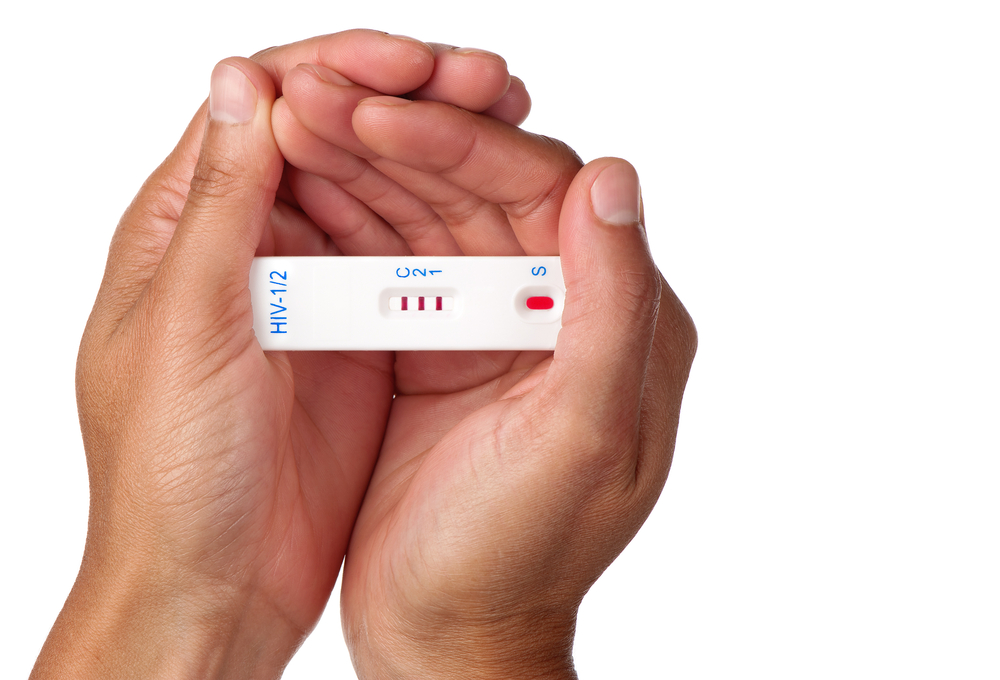
Many people living with HIV do not realise they are infected until the late stages of the disease, yet HIV can be easily detected via a simple blood test. National HIV testing week starts on 17th November 2018 and aims to promote increased opportunities for HIV testing.
What is HIV?
Human Immunodeficiency Virus (HIV) is a virus that infects and destroys a type of the body’s white blood cells, called CD4 T cells. These cells play a vital role in fighting off infections caused by bacteria, viruses and other invaders within the body. If left untreated, the number of healthy CD4 T cells remaining in an infected person’s blood can drop over a number of years, leading to Acquired Immunodeficiency Syndrome (AIDS), a life-threatening but now uncommon condition1.
How does HIV spread?
People become infected by HIV in three main ways:
- Sexual contact: most people with HIV in the UK have acquired it through vaginal or anal sex without a condom. The risk of transmission by oral sex is much lower2
- Body fluids: although less common, HIV can be spread via infected blood. This includes needlestick injuries and needle sharing, as well as contaminated blood transfusions
- Mother to child: HIV can be passed from mother to child during pregnancy, during childbirth or whilst breastfeeding. However, the risk of transmission with appropriate treatment can be lowered to 1%3
In the UK, an estimated 101,200 people were living with HIV in 2015, which is around 1.6 per 1000 people. Of these, 10,400 people were unaware that they had HIV, and there were 6095 new diagnoses of HIV1. Late diagnosis remains a key issue despite testing and treatment being freely available4. Groups most at risk of becoming infected include men who have unprotected sex with men, heterosexual black African men and women5, and people who inject drugs6.
How is HIV infection diagnosed?
A simple blood test is able to detect HIV. These are available at sexual health clinics, charity clinics such as Terrence Higgins Trust, and some GP surgeries. Home sampling and self-test kits are often able via post in many parts of the UK.
What can happen when someone has HIV?
In the early stages of HIV infection, there may be no symptoms present. However, as the virus spreads within the body and the healthy CD4 T cell count drops, this can lead to AIDS. AIDS is a potentially life-threatening condition because it makes people vulnerable to opportunistic infections such as pneumocystis pneumonia, and viral-induced cancers such as Kaposi’s sarcoma. It is also associated with severe weight loss. In 2016, 442 people died from AIDS-related illnesses in the UK2; however, with the correct treatment AIDS is, fortunately, becoming more and more presentable.
How can HIV be treated?
There is still no cure for HIV, but treatment is now enabling many affected people to live their lives normally. Antiretroviral Therapy (ART) should be started immediately as it is used to slow down the replication and spread of the virus in the body. The viral load is measured by a blood test to monitor the effectiveness of the treatment, with most people reaching an undetectably low level of HIV within 6 months of starting ART7. The risk of transmission of HIV from a person on ART has also been shown to be reduced8.
In an emergency, Post-Exposure Prophylaxis (PEP) should be started within 72 hours of coming into contact with HIV to reduce the risk of becoming infected.
Of course, prevention is better than cure, so avoiding having sex without a condom or sharing needles will greatly reduce the risk of becoming infected with HIV.
This article is for information only and should not be used for the diagnosis or treatment of medical conditions. myHealthSpecialist makes no representations as to the accuracy or completeness of any of the information in this article or found by following any link from this article. Please consult a doctor or other healthcare professional for medical advice.

James Gregory
Final year medical student, King’s College London
@jamesgregory94